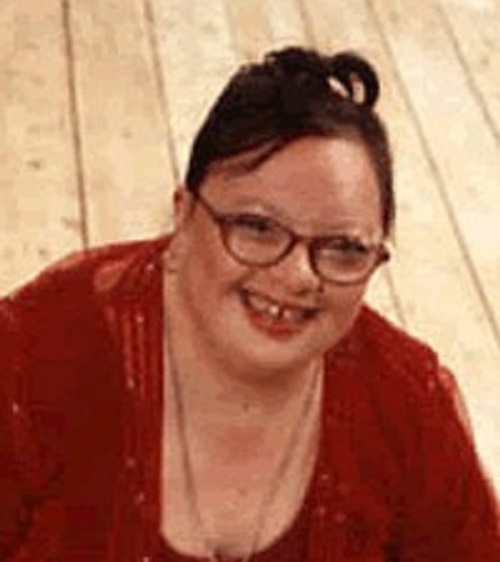Justified?

Abortion of the disabled is never justified
Better not to be born?
It is often said, "We should not bring a defective child into the world. If we have reasonable grounds to believe that the child will be defective, and therefore handicapped, either physically deformed or mentally retarded, it is an act of mercy not to let such a child come into the world. He will have a miserable life, a life of anguish and suffering. We should spare him that. It is better for him that he not be born at all."
Not morally justified
Abortion to prevent the birth of a "defective" child is not morally justified, for several reasons.
The verdict that a child in the womb will be born defective can easily be mistaken. It is hardly ever, if ever, a certain one. As a rule it is a mere probability, and not even a very high one.
There is some chance that your child will be born with a defect. Since that is so, why not wait until birth? Why kill a child who might be defective?
One may well be killing a child who is in fact perfectly healthy. So, if the reasoning is that a "defective" child should be terminated, why not wait until one knows with certainty whether she is in fact "defective." Why not wait until birth?
A coroner in Britain ordered an inquiry after a post examination on a baby who was aborted because of an alleged brain abnormality, showed there was nothing wrong with the child. When Jacquleine James was told that there was something wrong with her baby on her fifth scan she decided to have an abortion. Her 27-week old baby lived for 45 minutes after the abortion and in fact was a perfectly healthy baby.
Should she have killed the baby at birth? Does that sound horrible? But why is killing this same child before birth any different? Why is killing her at an earlier phase of her existence "all right," "an act of mercy," while killing her at a later phase such a horrible thing? The difference is purely psychological. One who favors killing before birth - called abortion - need not see the child, hear her cry, or look into her pleading eyes.
The child is not seen, so she is psychologically not there as a real person with whom we identify. That says a lot about us; it says nothing of any significance about the child herself.
It is one thing if a severely handicapped person decides for himself that his life is not worth living; it is quite another if we impose such a decision on him.
The same reasons, in terms of individual autonomy, that make it wrong to kill an unwanted child also make it wrong to kill a defective child. Many handicapped people have happy lives. They find meaning and fulfillment in life through creativity and love. They are glad to be alive. The argument for aborting a defective child assumes that such a child will be unhappy. This is an unwarranted assumption, and when it is removed, the pro-abortion argument based on it collapses.

Unwanted children
The term unwanted is often applied to children: there are no unwanted children,
only unwanting adults.
Some such parallel applies to the term defective, as in "defective child." It is true that there are real differences among children, between those who have the capacity to walk and those who do not, between those who can see and those who are blind, and so on.
These are important differences, and the negative in each case does imply a defect. But it is not a defect of the person; it is a defect in ability and bodily state. The term "defective child" is odious because it implies that it is the child himself who is defective, rather than something about his body.
If a very sick person dies of his illness, that is a natural death; it is not a moral evil, it is not murder, since no one intentionally killed him. If he is deliberately killed, "mercy killing," that is murder. What is perfectly obvious for born persons applies equally to preborn persons. "Every child a wanted child" sounds noble. When it is taken to imply the destruction of children who are unwanted, it becomes something frightening.

Abortion advocates use 'disability' as a propaganda tool
Not an acceptable solution
As shocking a reality as this is, abortion advocates would have you believe that putting a child to death is an acceptable solution to that child's physical or mental disability. In much the same way that they argue for aborting children who might grow up in poverty, abortion advocates also argue for the right to abort children who might grow up with a disability...as if disease or handicap somehow strips a person of their right to live and relegates them to a life of misery. Such a suggestion is barbaric and inhumane and has no place in a just society. There are children of all ages, and adults too, who are alive today and are living through all manner of disease and disability. Do these physical limitations make them less than human? Is killing everyone who is sick really an acceptable way to treat sickness?
The pressure to abort handicapped babies is built largely on conjecture, on the mere "likelihood" that a child has some kind of disability. Often, the tests prove wrong, and more often still, these children, if allowed to live, end up with lives of joy and happiness that far exceeds those of their "more healthy" peers. Suffering and hardship are not bad things. They are means to a greater end, a crucial part of the human journey. Anyone who tries to eliminate suffering by killing the "sufferers" is establishing a very, very, very, very dangerous trend! It is not for us to decide who has a life worth living and who doesn't, and we certainly wouldn't want someone else making that decision for us!
True Agenda
In the end, this whole question of disability is a mere disguise to divert attention from abortion's true agenda. The fact is, abortion advocates support killing babies whether they have disabilities or not. They're not arguing that abortion should be limited to foetuses with severe handicaps. They're arguing that the mother, alone, should have the right to kill her baby for any reason under the sun, and that is the most shocking reality of all.
Exposed
Those advocating abortion for the disabled were challenged by a young woman with Down's Syndrome. In May 2003, doctors and medical professionals assembled in London for the International Down's Syndrome Screening Conference. Despite an attempt to prevent a group of people with Down's Syndrome from speaking, one of them, Anya Souza, finally addressed the conferees. She said:
I can’t get rid of my Down’s syndrome, but you can’t get rid of my happiness. You can’t get rid of the happiness I give to others either. It’s doctors like you that want to test pregnant women and stop people like me being born. Together with my family and friends I have fought to prevent my separation from normal society. I have fought for my rights…I may have Down’s syndrome but I am a person first.
Anya Souza, May 2003, Speaking at the International Down’s Syndrome Screening Conference
